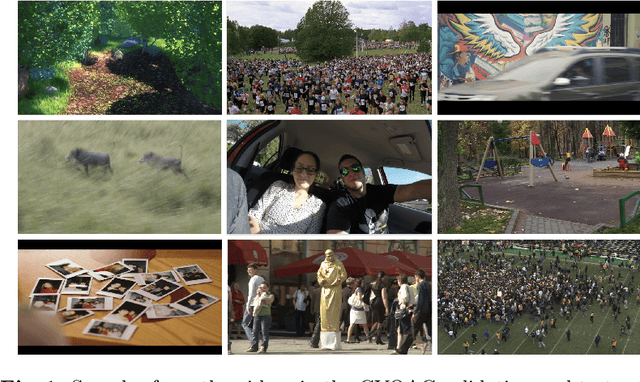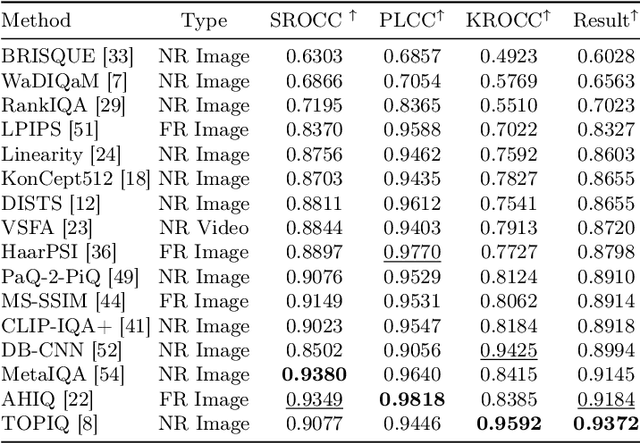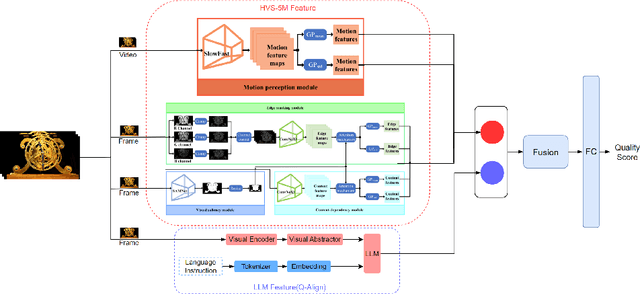Chenlong He
AIM 2024 Challenge on Compressed Video Quality Assessment: Methods and Results
Aug 21, 2024



Abstract:Video quality assessment (VQA) is a crucial task in the development of video compression standards, as it directly impacts the viewer experience. This paper presents the results of the Compressed Video Quality Assessment challenge, held in conjunction with the Advances in Image Manipulation (AIM) workshop at ECCV 2024. The challenge aimed to evaluate the performance of VQA methods on a diverse dataset of 459 videos, encoded with 14 codecs of various compression standards (AVC/H.264, HEVC/H.265, AV1, and VVC/H.266) and containing a comprehensive collection of compression artifacts. To measure the methods performance, we employed traditional correlation coefficients between their predictions and subjective scores, which were collected via large-scale crowdsourced pairwise human comparisons. For training purposes, participants were provided with the Compressed Video Quality Assessment Dataset (CVQAD), a previously developed dataset of 1022 videos. Up to 30 participating teams registered for the challenge, while we report the results of 6 teams, which submitted valid final solutions and code for reproducing the results. Moreover, we calculated and present the performance of state-of-the-art VQA methods on the developed dataset, providing a comprehensive benchmark for future research. The dataset, results, and online leaderboard are publicly available at https://challenges.videoprocessing.ai/challenges/compressed-video-quality-assessment.html.
AIS 2024 Challenge on Video Quality Assessment of User-Generated Content: Methods and Results
Apr 24, 2024



Abstract:This paper reviews the AIS 2024 Video Quality Assessment (VQA) Challenge, focused on User-Generated Content (UGC). The aim of this challenge is to gather deep learning-based methods capable of estimating the perceptual quality of UGC videos. The user-generated videos from the YouTube UGC Dataset include diverse content (sports, games, lyrics, anime, etc.), quality and resolutions. The proposed methods must process 30 FHD frames under 1 second. In the challenge, a total of 102 participants registered, and 15 submitted code and models. The performance of the top-5 submissions is reviewed and provided here as a survey of diverse deep models for efficient video quality assessment of user-generated content.
 Add to Chrome
Add to Chrome Add to Firefox
Add to Firefox Add to Edge
Add to Edge